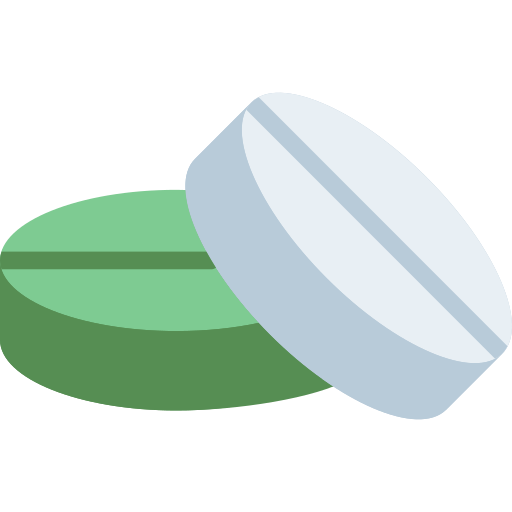
Levodopa + Benserazide
200 mg+50 mg
Renata Limited
Product Details
Description
Levodopa & benserazide is indicated for the treatment of all forms of Parkinson's syndrome with the exception of medicine-induced parkinsonism. Levodopa & benserazide dispersible is a formulation which is suitable for patients with dysphagia (difficulties in swallowing) or who require a formulation with a more rapid onset of action, e.g. patients suffering from early morning and afternoon akinesia, or who exhibit "delayed on" or "wearing off" phenomena. Levodopa & benserazide HBS is indicated for patients presenting with all types of fluctuations in response, especially those related to fluctuations in plasma levels (i.e. "peak dose dyskinesia" and "end of dose deterioration") and for better control of nocturnal symptoms. Further experience is required to determine whether it is also advantageous to use Levodopa & benserazide HBS in new Parkinson patients.
When taking standard this combination capsules or this combination HBS, patients must always ensure that they swallow the whole capsule without chewing it. this combination dispersible tablets are to be dispersed in a quarter of a glass of water (approx. 25-50 ml). The tablets disintegrate completely, producing a milky-white dispersion within a few minutes. Because of rapid sedimentation, it is advisable to stir the dispersion before drinking. this combination dispersible tablets should be taken within half an hour of preparing the dispersion. Where possible, this combination should be taken at least 30 minutes before or 1 hour after meals, so that the competitive effect of dietary protein on levodopa uptake can be avoided and to facilitate a more rapid onset of action. Undesirable gastrointestinal effects, which may occur mainly in the early stages of the treatment, can largely be controlled by taking this combination with a low protein snack (e.g. biscuits) or liquid or by increasing the dose slowly.
This combination is contraindicated in: Patients with known hypersensitivity to levodopa or benserazide or any of the excipients. Patients receiving non-selective monoamine oxidase (MAO) inhibitors due to the risk of hypertensive crisis. However, selective MAO-B inhibitors, such as selegiline and rasagiline, or selective MAO-A inhibitors, such as moclobemide, are not contraindicated. Combination of MAO-A and MAO-B inhibitors is equivalent to non-selective MAO inhibition, and hence this combination should not be given concomitantly with this combination. Patients with decompensated endocrine, renal or hepatic function, cardiac disorders, psychiatric diseases with a psychotic component or closed angle glaucoma. Because levodopa may activate a malignant melanoma, this combination should not be used in patients with suspicious, undiagnosed lesions or a history of melanoma. The management of patients with intention tremor and Huntington’s chorea. Patients less than 30 years old (skeletal development must be complete).
Pregnancy Category B3. This combination is contraindicated during pregnancy and in women of childbearing potential in the absence of adequate contraception. If pregnancy occurs in a woman taking this combination, the medicine must be discontinued (as advised by the prescribing physician). The safe use of this combination during lactation has not been established. Since it is not known whether benserazide passes into breast milk, mothers requiring this combination treatment should not nurse their infants, since the occurrence of skeletal malformations in the infants cannot be excluded.
Renal impairment: Levodopa and benserazide are both extensively metabolised and less than 10% of levodopa is excreted unchanged through the kidneys. No dose reduction is therefore necessary in case of mild or moderate renal insufficiency. Pharmacokinetic data with levodopa in renal impaired patients are not available. This combination is well tolerated by uraemic patients undergoing haemodialysis. Hepatic impairment: Levodopa is mainly metabolised by the aromatic amino acid decarboxylase that is abundantly present in the intestinal tract, in the kidney and heart in addition to the liver. Pharmacokinetic data with levodopa in hepatic impaired patients are not available. Paediatric use: This combination is contraindicated in patients less than 30 years old
Antiparkinson drugs
Keep below 30°C temperature, away from light & moisture. Keep out of the reach of children.
-
Support 24/7
Call us anytime -
100% Safety
Only secure payments